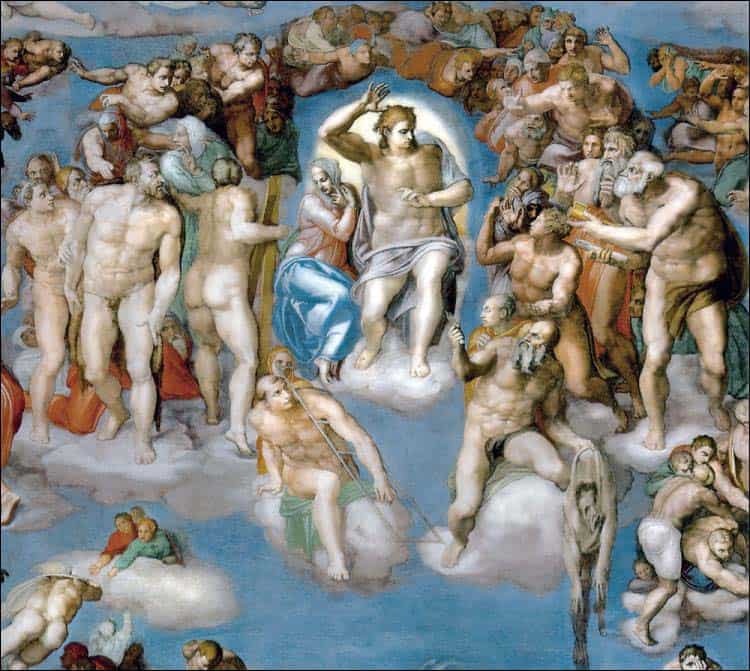“All right, gentlemen, take a seat and get to work.”
So began another end-of-day study period last week. One of my favorite students (not that teachers have favorites), who can do no wrong in my estimation (not that teachers are partial), floats in late, unphased by his tardiness. “James” starts chatting me up, a little too nonchalantly in my mind, from the back of the classroom. He leans against a book shelf, fingers interlaced like a sixteen year old trying to be taken seriously.
“So, Simones Ess-Jay,” he says with that Hispanic twang in his voice, “God loves us so much that he created the world…” Interested to see where he’s headed, I let the informality slide.
“That’s right,” I respond as I try to fight off the smile of a delighted teacher.
“So then, you know, when the world comes to an end,” and here his sixteen year old eyes narrow philosophically, “don’t you think it’s kinda mean for God to suddenly end the world? And, like, end the lives of all those people, and little babies, and beautiful things and stuff?”
Hmm, I think. Where to begin to answer that?
***
I’ve spent a healthy slice of my own life sitting in classes on St. Thomas Aquinas, investigating how God — the prima causa and first mover — creates something from nothing, purely out of His self-effusive love. And yet all things that are created, writes the Angelic Doctor, must likewise decay. Sunrise, sunset.
And then the sed contra! On the contrary!
And so, all thanks to a sixteen year old, I wonder for the first time why it is that a loving God would permit the decay of creation. What is more: why would God, in love, usher in the apocalypse and end the beauty of creation? It’s like watching someone take a bulldozer to the family home. Or worse, like trashing the homestead yourself, wondering if something better will take its place.
As believers, eternal life with God-Who-Is-Love is what we long for, to be sure. But James’s question got me thinking about how we make that transition from time to eternity. In Pope Benedict’s beautiful encyclical Deus Caritas Est, we read that “Love embraces the whole of existence in each of its dimensions, including the dimension of time. It could hardly be otherwise, since its promise looks towards its definitive goal: love looks to the eternal.” But James’s question stands. It’s hard to reconcile a loving Creator with what we encounter in the Book of Revelation. This is that loving catalyst that ushers in eternal life in God? (I mean, don’t get me wrong, I do love Verdi’s Requiem, but…)
***
Back in my classroom, I marvel for a moment that this is the question turning over in the mind of a cheeky adolescent. A smart-aleck by training, James is just deferential and clever enough to float under the radar; a regular Eddie Haskell, my father would say. He does what he needs to succeed in school, and doesn’t sweat the rest. Still, he doesn’t shy away from the questions that give his teachers pause. It’s the pause of wonder, because these are life questions that defy easy answers.
Why is there evil in the world?
Why does God permit suffering?
How is decay and destruction part of God’s larger plan?
Where does time end and eternity begin?
Maturity, it’s been said, entails “living in the questions.” Rather than running, maturity in faith is an invitation to be taken in by this God who – for the foreseeable future at least – remains The Mystery.
I walked home from school that day smiling, feeling that, today at least, I’d gotten to witness a kid wrestle with the big questions. I can’t help but think that he wanted someone else to know that he’s thinking about them.
As I arrived home, it finally hit me why James is one of my secret-favorite students, no surprise here, it’s because he reminds me of me. And who knows… maybe someday he’ll do something great with his life – be a deep thinker or a solver of great problems, maybe even a Jesuit, too. Or maybe the world will end tomorrow. In the meantime, I delight whenever he saunters over in study hall, squinting thoughtfully as he puts words to the great questions of life.



